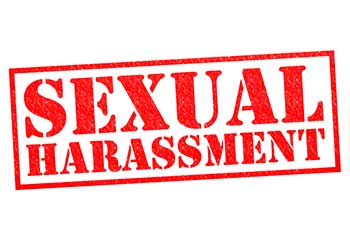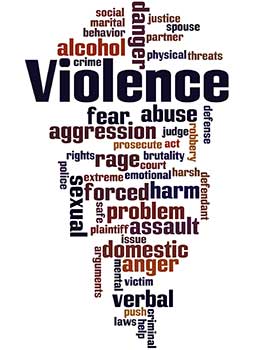 Adult Group homes may provide an alternative to nursing homes for older adults who are at risk of living alone but do not require nursing care. These homes allow elderly family members to have more autonomy, while still providing convenient access to services. Adult group homes refer to housing for groups of unrelated adult individuals with disabilities. In Illinois, there are several categories of adult group homes:
Adult Group homes may provide an alternative to nursing homes for older adults who are at risk of living alone but do not require nursing care. These homes allow elderly family members to have more autonomy, while still providing convenient access to services. Adult group homes refer to housing for groups of unrelated adult individuals with disabilities. In Illinois, there are several categories of adult group homes:
- Shared Housing Establishment (SHE) – Residence for ≤ 16 persons, at least 80% of whom are age 55 or older.
- Assisted Living Facility (ALF) – Residence for at least 3 unrelated adults, at least 80% of whom are age 55 or older.
- Supportive Living Facility (SLF) – Residential setting that combines apartment-style housing with personal care and other services.
- Residential Care Facilities for the Elderly (RCFE) – Provides non-medical care to elderly people in a group living arrangement, frequently providing meals and assisted with laundery and housekeeping.
Cost is an important and often limiting element when determining what type of facility you and your family can afford. Medicaid can pay for all SLF facility services except room and board, and SLFs cannot charge more than the Supplemental Security Income (SSI) rate. Medicaid does not pay for ALFs or SHEs, so most residents pay with their own financial resources or with long-term care insurance. ALFs and SHEs vary in building size (from single family homes to large communities), room size (studio to suites or apartments) and can be freestanding or part of a retirement community.
SHEs and ALFs do not have age requirements except that 80% of the residents must be age 55 or older. However, in order to be accepted for residency or remain in residence at a SHE:
- The facility must be able to provide or secure appropriate services for you
- You need a level of service or type of service for which the facility is licensed
- The facility must have sufficient staff with appropriate skill to provide those services
There are also circumstances that may preclude you from being a resident at an ALF or SHE. Potential residents may not be accepted and current residents cannot be maintained if any of the following circumstances exist:
- You pose a serious threat to yourself or others
- You are unable to communicate your needs
- You need help with an activity of daily living from more than one paid care-giver at any given time
- You need total assistance (staff or another individual performs the entire activity without your participation) with two or more activities of daily living
- You need more than minimal assistance in moving to a safe area in an emergency
- You have a severe mental illness where you are substantially disabled in the areas of self-maintenance, social functioning, activities of community living, and the mental illness is expected to persist for more than one year (this does not exclude persons with Alzheimer’s disease and other forms of dementia)
- You need treatment that cannot be self-administered or administered by a qualified licensed health care professional (intravenous therapy, replacement of catheter, sterile wound care, feeding tube feedings, routine insulin injections for diabetics)
- You need treatment of stage 3 or 4 pressure sores
- You need five or more skilled nursing visits per week for three consecutive weeks or more
Before being admitted to an adult group home, a doctor must perform a comprehensive assessment of your condition including an evaluation of your physical, cognitive, and psychosocial condition, as well as a test for tuberculosis. Residents with Alzheimer’s disease may be subject to additional evaluations before admission in order for the facility to determine whether it can provide secure and appropriate care.
Based on this assessment, the facility will develop a service plan that will serve as the basis for the service contract between you and the facility. This plan must be reviewed and revised, if necessary, every year or immediately after a significant change in condition.
In Illinois, the Illinois Department of Public Health (IDPH) must license all ALFS and SHEs (list of licensed ALFs and SHEs in Illinois). Illinois ALFs and SHEs are subject to the Illinois Assisted Living and Shared Housing Act (210 ILCS 9) and the Assisted Living and Shared Housing Establishment Code (77 Administrative Code 295). These regulations are in place to provide protection to elderly residents who are at risk of abuse and neglect. Licensed group homes are required to offer certain mandatory services including:
- Secure housing
- Laundry
- Housekeeping
- Three meals per day
- 24-hour security
- Emergency communication response system
- Assistance with some activities of daily living (eating, dressing, bathing, toileting, transferring, and personal hygiene)
Optional services include:
- Medication services – Medication reminders, supervision of self-administered medication, medication administration, medication storage, and medication records.
- Transportation to the doctor
- Money management or banking
- Beauty shop
- Postage or mailing
- Help with shopping
- Meals for visitors and guests
Most ALFs and SHEs are not required to have nurses on staff; however, the facility must employ a sufficient number of qualified staff to meet the 24-hour needs of the residents. At all times, at least one direct care staff person who is CPR certified must be on duty.
SHEs must have at least one staff member on site at all times, except in emergency situations or short trips. ALFs must have at least one staff member awake, on duty, and on-site 24-hours a day. There are also building requirements for ALFs and SHEs. Both must conform to the applicable building, fire, and life safety codes and must meet the accessibility standards of the Americans with Disabilities Act (ADA). The facility must also meet environmental requirements designed to maintain a clean, healthy, and safe environment.
As a resident of a SHE or ALF, you have all the rights guaranteed under the Constitution of the United States, the Constitution of the State of Illinois, federal resident’s rights, and resident’s rights guaranteed by Illinois statutes. These include the right to:
- Live in an environment that promotes and supports your dignity, individuality, independence, self-determination, privacy, choice, and to be treated with consideration and respect
- Direct and negotiate the terms of your own care
- Be free of chemical and physical restraints
- Privacy in financial and personal affairs
- Review and copy your personal files
The facility must execute a contract between you and the facility and provide you with a copy. If the facility reasonably believes that you have been a victim of abuse, neglect, or financial exploitation, the facility must remove the alleged perpetrator from direct contact with residents, notify IDPH, conduct its own investigation, and submit a written report to IDPH.
The federal Fair Housing Act prohibits discrimination on the basis of handicap (mental or physical impairments which substantially limit one or more major life activities). Adult group homes are subject to state regulations that help protect the health and safety of the residents.
Abuse and neglect in adult group homes are major concerns for adult group homes. Elderly adults, especially those suffering physical or mental impairments, are particularly susceptible to nursing home abuse and neglect. While residents of adult group homes are not as dependent upon staff as nursing home residents, they are still unable to perform all activities of daily living, relying on group home staff members to provide proper services and assistance. Several recent news stories reveal horrific violations of the law and human decency, when group homes mistreat their adult residents.
Unlicensed group home
California investigators recently shut down an illegal and unlicensed adult group home in San Bernardino, CA, that was described as having prison camp conditions. The facility was surrounded by razor wire fences and padlocked gates. Investigators reported that 22 elderly adults, some suffering from mental impairments, were abused, crammed into converted chicken coops, and forced to use buckets as toilets. Some of the residents were living in rooms as small as 6 by 15 feet, with two beds and a mattress in the room. The owner, 61-year-old Pensri Sophar Dalton, was arrested and charged with 16 counts of causing harm to elderly adults. After the facility was shut down, most residents were picked up by family members or taken to licensed facilities.
Physical and emotional abuse of residents in a group home
NBC news reported that a Michigan special investigative report revealed that residents at a group home in Flint, MI suffered emotional and physical abuse at the hands of the owner and her boyfriend. One resident alleged that he was locked in a closet after not following orders. Neighbors are concerned for the elderly residents because they are not being removed immediately because of a complicated appeals process.
Adult group homes can be a helpful alternative to nursing home facilities; however, residents are still susceptible to elder abuse and neglect. Therefore, families should thoroughly investigate facilities before placing their loved ones in the hands of an ALF or SHE.
Nursing Home Law Center LLC is committed to the the safety of all individuals living in group homes– young people, teenagers, adult and elderly.
We are proud to have successfully represent individuals living in group homes who have suffered many types of injuries including: sexual abuse, food poisoning, physical abuse, as well as other types of injuries due to improperly maintained property.
If you suffered an injury in a group home, we welcome would be honored to speak with you. As we have done for more than 30 years, all consultations are completely free and confidential. Should you wish to retain our office, there is never an attorney fee charged, unless we recover for you.
Providing nationwide legal representation: (800) 926-7565
Resources:
Illinois Department of Public Health: Assisted Living / Shared Housing Licensed Establishments
Illinois Department of Public Health – Assisted Living / Shared Housing Initial License Application
Illinois General Assembly: 77 Illinois Administrative Code 295 – Assisted Living and Shared Housing Establishment Code
U.S. Department of Justice: Group Homes, Local Land Use, and the Fair Housing Act
Continue reading ›
 Just days ago, another sexual assault was seemingly perpetrated by a CNA at a Chicagoland nursing home. The Chicago Tribune reported that Robert J. Phelan, Jr., a CNA at Lexington Health Care of Orland Park has been charged with Aggravated Criminal Sexual Assault after a coworker reported him engaging in inappropriate contact with a dementia patient at the facility.
Just days ago, another sexual assault was seemingly perpetrated by a CNA at a Chicagoland nursing home. The Chicago Tribune reported that Robert J. Phelan, Jr., a CNA at Lexington Health Care of Orland Park has been charged with Aggravated Criminal Sexual Assault after a coworker reported him engaging in inappropriate contact with a dementia patient at the facility. Nursing Home Law News
Nursing Home Law News








